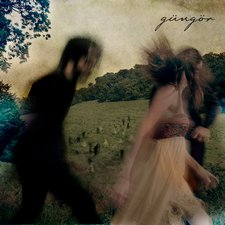This is not the end
This is not the end of this
We will open our eyes wide, wider
This is not our last
This is not our last breath
We will open our mouths wide, wider
And you know you’ll be alright
Oh and you know you’ll be alright
This is not the end
This is not the end of us
We will shine like the stars bright, brighter
Behind the Song:(Commentary by Lisa Gungor)
There are two ideas that are woven throughout this song. The first is a sense of determination born in the middle of anger – something had happened to us that felt unjust, leaving our spirits a bit defeated and raw. It felt as though we were meager little ants who were discovering that the traditional way of digging into the earth is bogus. But in spite of the discovery, we were still forced to succumb to the great ant tradition – clawing and scraping, shoving dirt into our mouth and spitting it out again.
So there I sat at the piano, trying to express the emotion of it through melody (admittedly feeling sorry for myself), when I suddenly felt this rise of determination …“this is not the end of us.” What is life if there is no resistance? If we don’t ever feel opposition, we probably aren’t saying anything. Branching out from the normal verse 1, verse 2, chorus, bridge, etc., the song naturally formed into a series of choruses with musical breaks going from 5 to 6 chiming in between, giving it this sort of dancing forward feel.
The banjo and glockenspiel give the song a bit of a lift, pushing the song into a fun (party-like) yet resolute feel. Gradually, the gang vocals join in, giving rise to this anthem of determination and hope (anytime I sing this song, I envision people dancing and singing at the top of their lungs with a mug held high in one hand and the other waving wildly…sort of Irish style).
The other thread in this song is along the lines of “The Fall.” I grew up with this vague, hazy perception of heaven, a less-than-real place. I thought heaven was somewhere else, up in the clouds, and one day I would be so light (or ghostly) I could sit on that cloud. But what if it is more real than the world we know now? In “The Great Divorce” C. S. Lewis paints this picture of the grass in heaven hurting people’s feet because it is more real than they are. Everything is more solid, more vibrant and alive. In all of the chaos, we have glimpses of true love and true peace, a sort of whisper of what is to come. Maybe we are the ghosts, and one day our eyes will be opened to what is real.
-- Lisa Gungor


 Point of Grace Unveils "Lady Wisdom" March 27
Point of Grace Unveils "Lady Wisdom" March 27 Journey Member Jonathan Cain Releases "Only A Prayer Away" EP
Journey Member Jonathan Cain Releases "Only A Prayer Away" EP Tommee Profitt x Jon Reddick Release New Song From Upcoming Project
Tommee Profitt x Jon Reddick Release New Song From Upcoming Project AOH Music Invites Listeners to Listen to "BEHOLD (Acoustic Live), Vol. 2"
AOH Music Invites Listeners to Listen to "BEHOLD (Acoustic Live), Vol. 2" Micah Tyler Announces Release of New Song, "Perfectly"
Micah Tyler Announces Release of New Song, "Perfectly" CeCe Winans Announces Her Biggest Tour Yet with COME WORSHIP! Tour
CeCe Winans Announces Her Biggest Tour Yet with COME WORSHIP! Tour 250 Artists Gather Together with Bill Gaither Ahead of His 90th Birthday, Out March 27
250 Artists Gather Together with Bill Gaither Ahead of His 90th Birthday, Out March 27 Click here All News Headlines |
Click here All News Headlines |